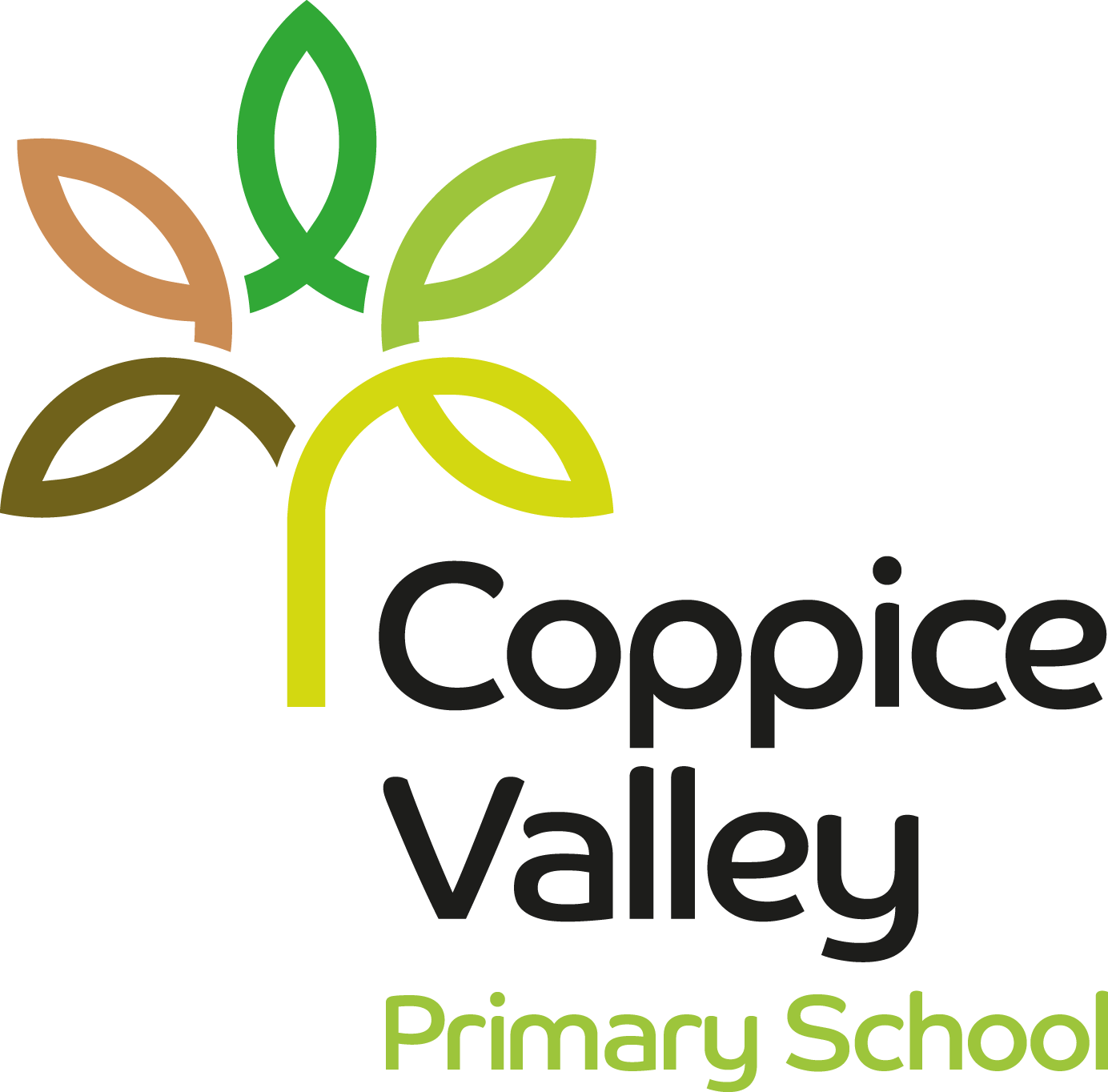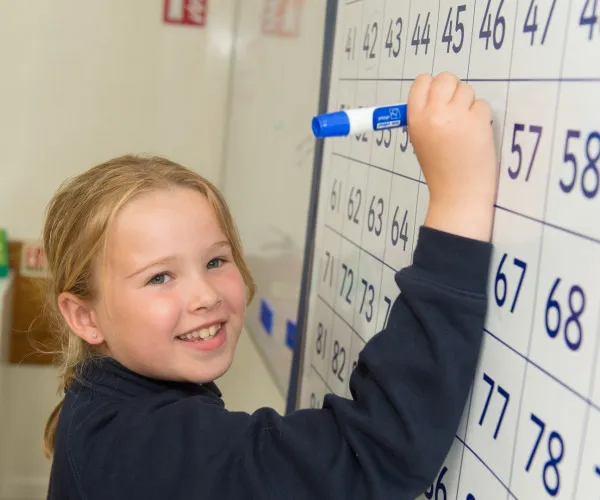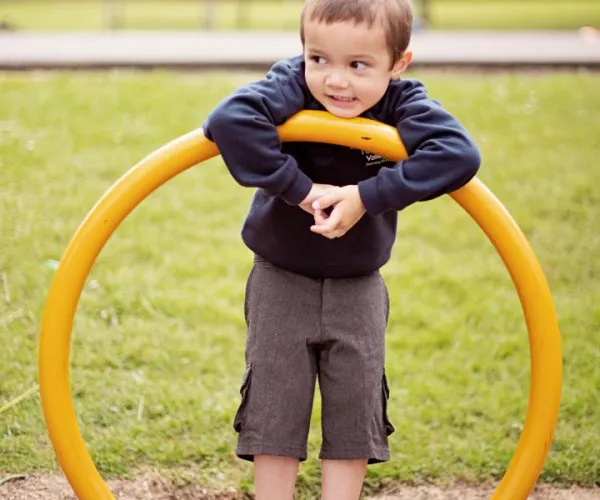- Our School
- Welcome from the Headteacher
- Our Vision and Ethos
- Admissions
- Term Dates
- Governance
- Our Staff
- Our Policies
- Results and Performance
- School Improvement
- Ofsted
- Safeguarding
- SEND
- Equalities, Diversity & Inclusion
- British Values, Tackling Radicalisation & SMSC
- Mental Health and Wellbeing
- About Red Kite Learning Trust
- Vacancies
- Teacher Training
SEND Information Report
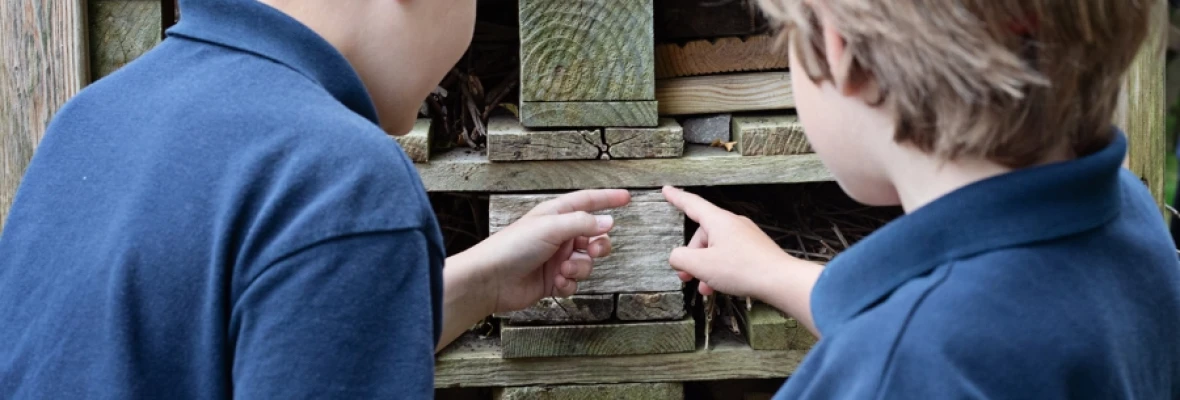 September 2025
September 2025
Headteacher – Hannah McNamara
SENCO/ Deputy Headteacher – Jo Fineran
SEND Governor – Peter Lacey
Our SEND information report outlines details for parents/carers of children who have Special Educational Needs or a Disability (SEND) and all those who support children with additional needs. This information outlines the support and provision you can expect to receive at Coppice Valley Primary School.
What is SEND?
Children with special educational needs have learning difficulties or disabilities that make it harder for them to learn than most children of the same age. These children may need different or extra help from that given to other children of the same age.
Children with special educational needs may need extra help because of a range of needs, such as in thinking and understanding, physical or sensory difficulties, emotional or mental health difficulties or difficulties with communicating and interacting with others.
Many children may have special educational needs of some kind at some time during their education. Schools and other organisations can help most children overcome the barriers their difficulties present quickly. A few children will need extra help for some or all of their time in school.
What kinds of SEND do we provide for in our school?
We welcome all children including those with SEND. We make our very best endeavours to meet the needs of all children including those with: physical and/ or sensory needs, cognition and learning needs, needs relating to communication and interaction, children with ASD, ADHD or those who are impacted by social, emotional or mental health difficulties. Our school is accessible to children and adults with physical disability via step-free entrances. We ensure that equipment used is accessible to all children regardless of their need.
What policies do we have for identifying children and young people with SEND? How do we assess their needs?
The class teacher will closely monitor the progress of your child and this will be discussed at regular pupil progress meetings. In addition, the class teachers, supported by the SENCO and the leadership team, carefully monitor all pupils’ wider developmental and social needs. Your child’s teacher will carefully check your child’s progress. If your child has a gap in their understanding and needs extra support to help them make the best possible progress, the teacher will discuss this with the SENCO. Any pupil not making expected progress will be identified and support, adaptations or interventions will be put in place. We will seek your views and those of your child.
If, after a period of not more than one term, your child is still not making the expected progress or needs continuing additional support in order to thrive at school and in their learning, the SENCO will become more formally involved and a formal identification of SEND will be made. You will be informed at every step. We have a wide range of diagnostics and formative assessments which we use to help us identify any child’s barrier to learning or development.
If you have any concerns about your child, don’t hesitate to contact your child’s class teacher to discuss this or ask any questions you may have.
What happens next?
School may feel that your child has additional needs, which means they have been identified by the class teacher as needing some extra support in school.
For your child this means:
- In discussion with you and your child, a plan may be put in place called ‘SEN Support Plan’ which details your child’s strengths, barriers to learning, desired outcomes and the type of support they will need to help them to make progress. This will be reviewed each term.
- From time to time, children may not make progress despite receiving additional support in school. If this is the case, school will liaise with external agencies to look for ways in which school can further support your child.
- If, despite these actions, your child still requires further support to secure expected progress, the school, in consultation with parents and other agencies, may decide to submit an ECHAR (Education, Health and Care Assessment Request) in order to provide the long-term support a child may need. School is not the only organisation who can request an ECHAR, parents can also make a request to the local education authority. Should this be successful then you and your child will have the support of an EHCP (Education, Health and Care Plan) The progress of children with an EHCP is formally reviewed at an Annual Review with all adults involved with the child’s education.
What is the SENCO’s name and how do I contact them?
Our SENCO is Jo Fineran and she be contacted via the school office on 01423 563760 or by email on Fineranj@cvps.rklt.co.uk and is always happy to talk to any parents both current and prospective about their children’s needs or to answer any questions that may arise. Please don’t hesitate to get in touch to have a chat.
How do staff at Coppice Valley Primary School support SEND children on a daily basis?
Coppice Valley Primary School is a single-form entry school, which means that all staff can get to know every child in school well. This ensures that support can be truly tailored to children’s needs. Class teachers and teaching assistants are all experienced in working with children with a wide range of SEND and participate ongoing training to continually improve and tailor our expertise to the needs of our SEND children.
Children with SEND are included in all aspects of our curriculum along with their peers. Learning is adapted where necessary by teachers to ensure that all
children can participate in and be successful in every area of the curriculum. We have high aspirations for all of the children at Coppice Valley and believe that with the right support, tailored to each child’s needs, everyone is able to fully participate and succeed in all areas of the curriculum.
Emotional and wellbeing support is at the heart of our approach at Coppice Valley school and this support is managed by our Family Support Worker and Mental Health Lead (Miss Samantha Wright). Support is always on hand to support children requiring emotional support as part of a regular programme or to provide urgent support if a child is experiencing particular difficulties for any reason.
What are our arrangements for consulting with parents of children with SEND and involving them in their child’s education?
At Coppice Valley Primary School we operate an ‘open door’ policy in which we want to work closely with you as a team in order to support you and your child. Meetings are held at least termly with all parents of children with SEND and parents have the opportunity to discuss their child’s progress and targets as well as work with us to co-construct our approach to supporting each individual child through the development of targets and support plans.
However, parents and carers are encouraged to speak with class teacher about any concerns they may have at any time and we operate an open door policy for parents and carers to discuss any aspect of their child’s education and support.
Class teachers are available most days after school for any questions, or if you would like a more detailed conversation, appointments can be made any time through the school office.
Class teachers are happy to discuss with you any support your child is receiving. We value our conversations with you as this enables us to provide appropriate support as early as possible for your child.
Parents may also contact the SENCO (Jo Fineran) at any time should they have any questions or concerns about their child.
What are the arrangements at Coppice Valley Primary School to consult our young people with SEND and how do we involve them in their education?
Our young people are at the centre of the support we develop for SEND children. All children on the SEND register have a pupil passport which is updated regularly. This document is written in consultation with each child and takes close account of their ideas, feelings and aspirations. Children express what they are good at, what they find difficult and things that they find help them. Their responses in this conversation form the foundation of the support we offer them and our support plans are then built from this.
Our SENCO meets regularly with SEND children to chat to them about how they are finding things, what they feel is working well and anything new or different they need to support them in their learning. This information is then added to their Support Plan so that class teachers can take account of this in the classroom environment.
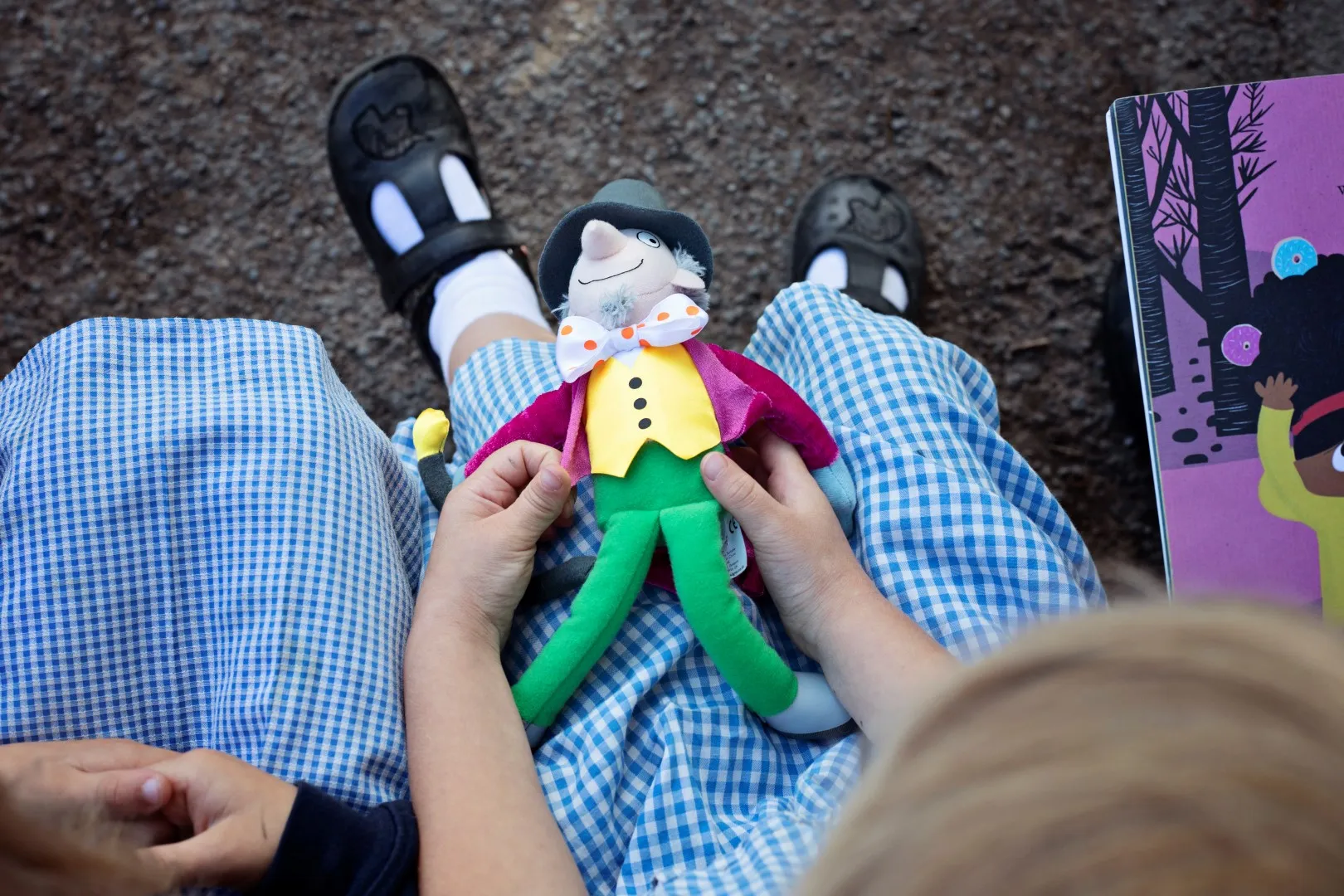
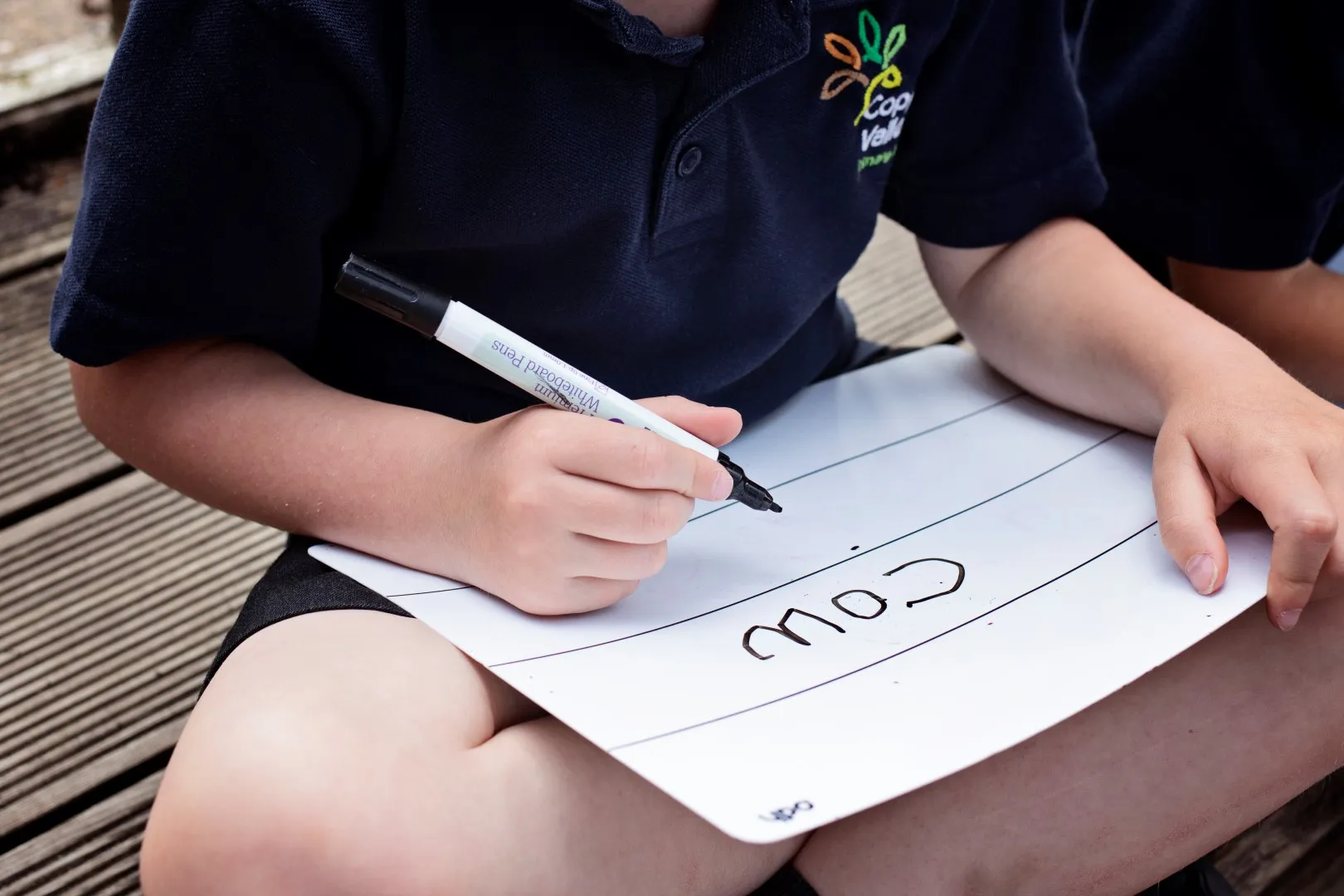
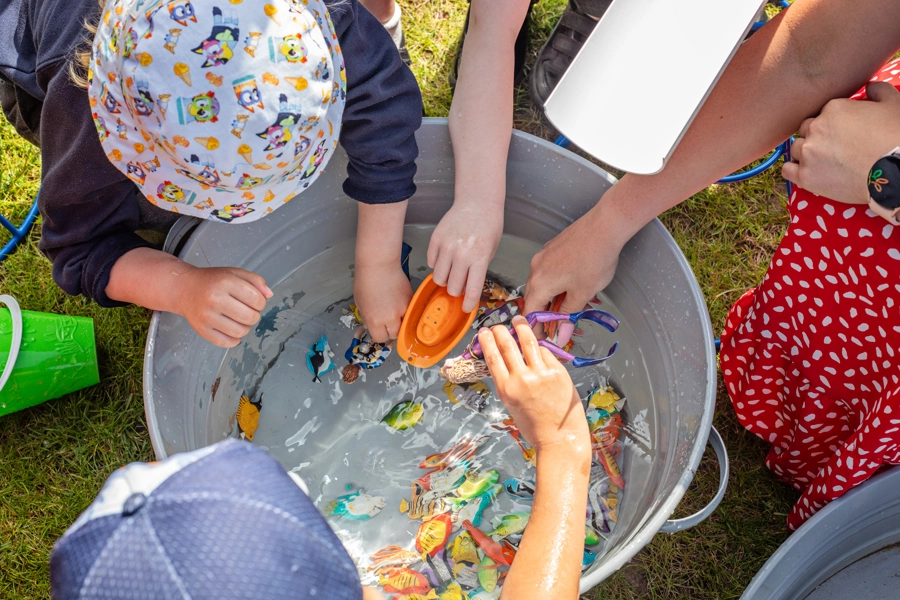
What are the arrangements for assessing and reviewing children’ progress towards outcomes? What opportunities are available to work with parents and young people as part of this assessment and review?
Your child’s progress is continually monitored by his/her class teacher. His/her progress is reviewed formally every term and a formal assessment given in reading, writing and maths.
Children on the SEN register have a termly support plan setting out individual targets for the term and the support in place to help them to meet that target. Progress against these targets is reviewed termly and this review process is then used to inform target setting and support for the following term.
A key part of the process of assessing and reviewing progress towards outcomes is made in collaboration and discussion with both the child and the parents/ carers. This is a vital part of the process and the child and their family are at the centre of our approach to supporting children at Coppice. As noted above, class teachers will meet with families of children with SEND at least termly to discuss children’s progress and next steps.
At the end of Year 6 all children are required to be formally assessed using Standard Assessment Tests (SATS). This is something the government requires all schools to do and the results are published nationally. The SENCO will ensure that reasonable adjustments are made to enable your child to access these tests as appropriate.
What sort of adaptations are made to the curriculum and the learning environment of children and young people with SEND?
The best support for all children has high quality teaching at its heart. All staff at Coppice are committed to providing quality first teaching so that all children can make good progress and thrive in their time at school. A well-planned curriculum, excellent classrrom resources and an inclusive school environment support the needs of learners. Teachers use a variety of strategies to scaffold learning and support learners with each step of learning, ensuring all children can succeed and celebrate their success.
For some children, further, more personalised support is needed and our graduated response to identifying and meeting children’s needs ensures that the right support is put in place. The graduated response is a continuous cycle of Assess – Plan- Do-Review. This means that children’s strengths and areas of need are regularly assessed and plans put in place to support them to make progress (Assess and Plan phases) The plan is then implemented (Do Phase) and then the impact reviewed (Review phase).
This means that support for your child is specific to their needs and is constantly reviewed and adapted to ensure that every child receives the best possible support to ensure they thrive.
All aspects of a child’s learning are considered in developing the best possible approach including: learning environment, tools to support in the classroom, use of IT, teaching methodology, in-class support, interventions, emotional wellbeing.
Interventions are delivered by teachers of highly-skilled teaching assistants and are carefully monitored in order to ensure that they help to accelerate your child’s progress.
All interventions currently used at Coppice are recorded on our Whole School Provision Map, which outlines provision available in school for children with:
- Cognition and learning needs
- Communication and interaction needs
- Social, mental and emotional health needs.
- Sensory and/or physical.
Our Whole School Provision Map sets out the types of provision currently in place at our school for supporting children with different needs. This can be found on our school website.
As set out in our provision map (see link on our website), we have a wide range of support and interventions available at school to support children. Our staff are experienced and trained in supporting children with a wide range of needs and are able to offer support both in class and through interventions to meet a wide variety of needs. We also work closely with the local authority and can access advice and support from specialist teachers in all areas of SEND should further expertise be needed to secure the best possible support for your child.
What arrangements are in place to support children when moving between phases of education?
At Coppice Valley Primary School we have pupils from reception through to Year 6. At the end of Year 6, children transfer to a secondary school to continue their education. The size of our school (single-form entry) means that all the staff know each child as an individual, which is invaluable in ensuring a smooth transition for children as they move between classes and key stages at our school.
Dedicated transition days are organised over the course of each summer term to give children the opportunity to get to know their new teacher better and become familiar with and comfortable in their new classroom. At this stage, the class teachers and SENCO will work with you and your child in order to identify and provide support in any areas your child may find difficult, particularly for children who find changes in routine challenging.
At the end of the primary phase of their education, children prepare for transition to secondary school. At Coppice we have good relationships with the local secondary schools and work with them to ensure a positive transition for all children with SEND as they move on to their next school. This can include: visits to our school by secondary school staff to meet with the children, arrangements for additional/ adapted transition days for children who need extra support in moving schools, focussed transition activities for children to help prepare them for transition and support with any worries or anxiety should this arise, communication by our SENCO (Jo Fineran) with SENCOs of the school children are transitioning to ensure that all progress information and details of additional support in place for each child is provided to the new school to help them in preparing to welcome new children.
How do we evaluate the effectiveness of the provision made for children with SEND?
The effectiveness of our SEND provision is evaluated by:
- Monitoring and evaluating the progress of children and using this information to inform next steps for children.
- Learning walks and pupil interviews to evaluate the effectiveness of our provision.
- Views of children and parents.
The governing body evaluate the work of the school by:
- Monitoring data with respect to vulnerable groups
- Challenging the leadership through informed questioning
- Undertaking learning walks in school with a focus on SEND
- Meeting with parents and pupils
- Ensuring there is appropriate continuing professional development for all staff and governors.
Who is the School Governor for SEND?
Our School governor for SEND is Peter Lacey. He is a champion for pupils with SEND and is responsible for making sure that the necessary support is made for any child with additional needs.
How are children and young people with SEND enabled to engage in activities available with children in the school who do not have SEND?
Coppice Valley Primary School is committed to being a truly inclusive school. We aim to provide a stimulating learning environment across the whole curriculum which maximises individual potential and ensures that pupils of all ability levels are equipped to meet the challenges of education, work and to achieve positive outcomes in life.
The school runs many extra-curricular clubs and activities to which all children are encouraged to participate and all clubs are accessible to all children, including those with SEND.
We work very hard to make all reasonable adjustments to ensure that this can happen. Educational visits including residential are accessible and encouraged to all children. Extra risk assessments, arrangements and planning take place as required on an individual basis.
How do you support children with SEND to improve their emotional and social development?
At Coppice Valley Primary School we foster a caring environment for all our children. The emotional wellbeing of children with SEND is at the heart of our approach and we take steps to regularly review each child’s wellbeing and put in additional support if needed.
We have a staggered start to the school day so that school staff can welcome our families first thing in the morning and parents are able to speak to staff if any worries or concerns have arisen that morning that staff should be aware of to allow them to support children during the school day.
We have a dedicated Family Support/ Mental Health and Wellbeing support worker (Sam Wright) who works with children and families to provide support where needed. This can be on an ongoing basis where needed, or focussed support at times of particular or heightened need. Sam Wright is a Senior Mental Health Lead with a qualification in Level 2 Counselling Skills. She is also trained in ELSA Emotional Literacy, Drawing and Talking and has extensive knowledge of supporting families and children with sleep, eating discorders etc. We also have a further 3 members of staff trained as Mental Health First Aiders in school to provide additional support.
We are aware that children with SEND can be particularly vulnerable in terms of their wellbeing, for example, if they find learning difficult. With this in mind, we ensure that all children with identified SEND are regularly reviewed using a bespoke wellbeing check or through session(s) with our Mental Health Lead to ensure that they are well supported in terms of their wellbeing.
Our caring staff team have embedded expertise in listening to pupils in order to explore the reasons / triggers for any emotional and social difficulties. Although, from time to time a child may need a high level of individual support, our aim is always to help children to be more independent in lessons and feel happy, confident and safe. We have a clear anti-bullying policy at Coppice (see school website) which is focussed on preventing instance of bullying and, where necessary, providing strategies to deal with any instances should they arise.
How does our school involve other bodies, including health and social care bodies, local authority support services and voluntary sector organisations in meeting children with SEND and supporting their families?
Sometimes it will be helpful for school to request some additional support from an outside agency. Coppice Valley Primary School has established excellent working relationships with professionals from the following agencies:
- Educational Psychologist
- Healthy Child Team and Health Visitors
- Prevention Services
- Sensory, Physical and Medical Team
- Speech and Language Therapist
- Physiotherapist
- Occupational Therapists
- Paediatrician
- Young Carers
- Just B (Bereavement support)
- Compass BUZZ/ Compass Reach
- Cluster counselling support services
Team Professionals from all the above agencies regularly support staff and children in school.
North Yorkshire Council SEND Local Offer
The Local Offer for SEND in North Yorkshire can be found by following the link to the Local Offer on our School Website.
What are the arrangements for admissions for children with SEND?
Our school admissions process is open to all children and the admissions policy is available on the school website. If any parents have any questions or would like to discuss anything relating to their chid and the admissions process, please don’t hesitate to contact either Hannah McNamara (Headteacher) or Jo Fineran (SENCO and Deputy Headteacher) through the school office (01423 563760).
Details of our current Accessibility Plan can be found on the school website.
What are the arrangements for handling complaints from parents of children with SEND about the provision made at the school?
If you have reason to complain about part of your child’s education or the action of another adult, then please follow the procedures outlined below.
The Headteacher should be informed in all instances of a complaint being made. The Headteacher will attempt to solve the problem and all concerned parties will be kept informed of developments.
Our full complaints procedure can be found on our school website.
- Our School
- Welcome from the Headteacher
- Our Vision and Ethos
- Admissions
- Term Dates
- Governance
- Our Staff
- Our Policies
- Results and Performance
- School Improvement
- Ofsted
- Safeguarding
- SEND
- Equalities, Diversity & Inclusion
- British Values, Tackling Radicalisation & SMSC
- Mental Health and Wellbeing
- About Red Kite Learning Trust
- Vacancies
- Teacher Training
